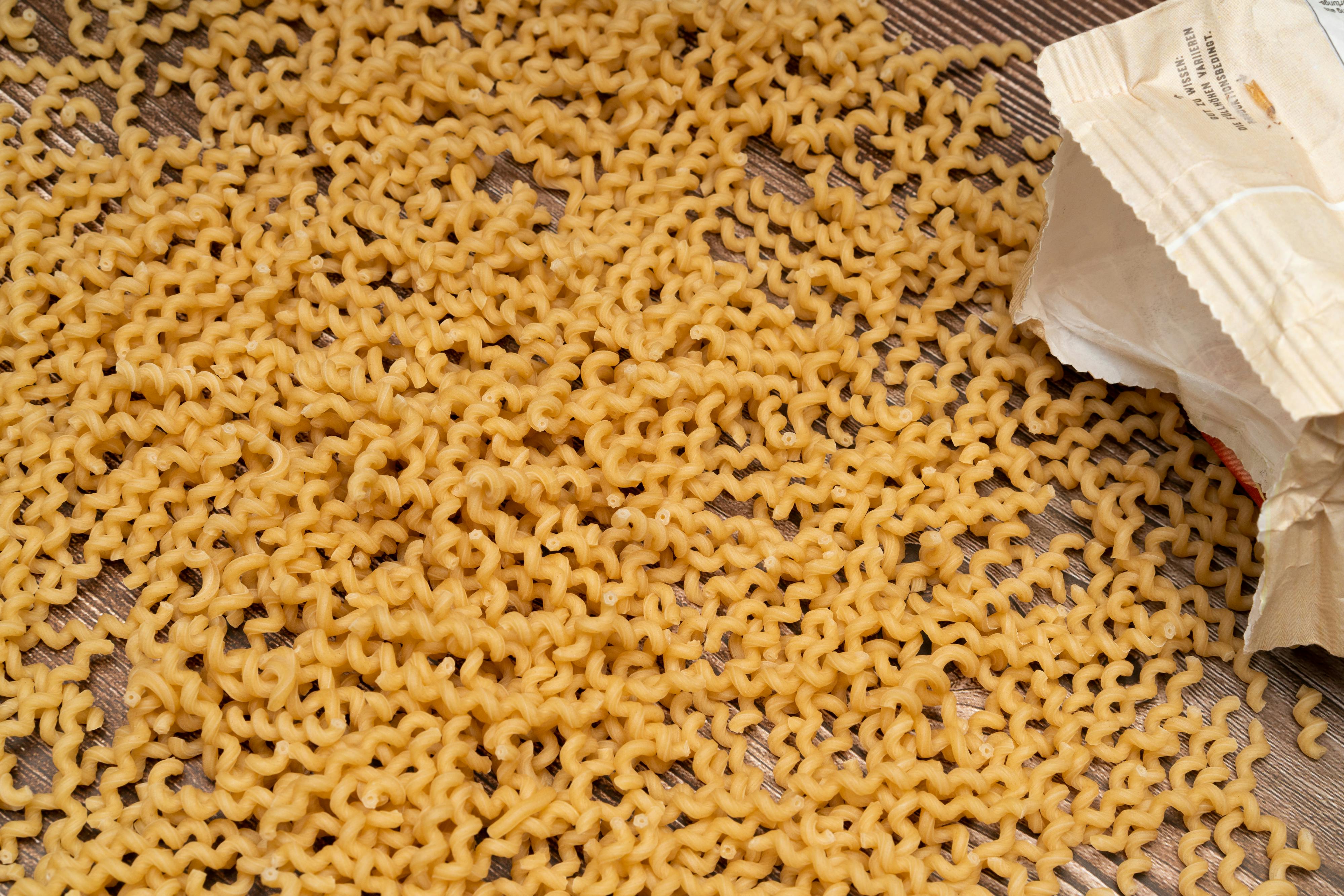
Apply Now


Understanding the Carb Content of Onions
Onions are not only a staple in kitchens around the world but also pack a powerful nutritional punch. In 2025, understanding their macronutrient profile is essential for those managing carbohydrate intake, especially individuals following specific dietary plans. This article delves into whether onions have carbs, their nutritional value, and how you can smartly incorporate them into your meals. Whether you're considering weight loss strategies or seeking ways to enhance your diet with low-carb vegetables, knowing the nutritional benefits of onions can guide your choices. Onions are low in calories, making them a fantastic option for adding flavor without significantly increasing your caloric intake. As we explore the nutritional properties of different onion varieties, you'll discover delicious onion recipes and their potential role in promoting health and wellness. Through this exploration, we aim to clarify misconceptions about onions and their carbohydrate content, debunk myths, and highlight benefits, including how they influence blood sugar and overall health. Plus, we'll look into how to effectively use onions in cooking, ensuring you enjoy their versatility and flavor while making informed choices.What Are Onions and Their Varieties?
Onions belong to the Allium family, which includes garlic, leeks, and shallots. There are several onion varieties, each with unique flavors and culinary uses. The most common types are yellow onions, known for their balanced flavor and versatility in cooking; white onions, with a sharper taste and crisp texture; and red onions, which add a splash of color and sweetness to dishes. Spring onions and green onions, often used as garnishes, are milder and equally beneficial. The nutrition profile of onions varies slightly between types, but they all share impressive health benefits. Nutritionally, they are low in calories, high in dietary fiber, and have a low glycemic index, making them suitable for various dietary needs, including those with diabetes.Do Onions Have Carbs?
Yes, onions do contain carbohydrates, but the amount is relatively low. For example, medium-sized yellow onions have about 11 grams of carbohydrates per 100 grams. However, the fiber content—around 1.7 grams—contributes positively to your daily dietary needs and aids digestion. Importantly, the carbohydrate content may vary slightly among different onion varieties. While anyone concerned about carb intake, particularly those on a carb-free diet, may wonder if onions should be included, their low glycemic index makes them a suitable option. The health benefits of onions, including antioxidant properties and heart health support, often outweigh concerns about their carb content when consumed in moderation.Nutritional Value of Onions
Onions are not just low-calorie; they are also nutrient-dense. They provide vital vitamins and minerals, including vitamin C, vitamin B6, and potassium. Moreover, they are rich in flavonoids and other antioxidants, which can help combat oxidative stress in the body. Dietary fiber found in onions aids in digestion and promotes satiety, making them a great addition to meals aimed at weight loss. Furthermore, their anti-inflammatory properties could play a role in reducing the risk of chronic diseases, including heart disease and diabetes. Incorporating onions into your meals can contribute to a nutrient-rich diet while offering a delicious flavor profile.Health Benefits of Onions
As discussed earlier, onions offer various health benefits that make them a valuable addition to your diet. Understanding these benefits can help you appreciate why they are a common ingredient in many health-focused recipes.Onions and Heart Health
Multiple studies suggest that onions contribute to improved heart health. They have been shown to lower blood pressure and cholesterol levels, enhancing cardiovascular function. The antioxidants in onions help combat inflammation and oxidative stress, both of which are linked to heart disease. Moreover, the high fiber content works to reduce bad cholesterol (LDL) levels in the blood, promoting overall heart health. Symptoms related to blood sugar spikes can also be mitigated by incorporating onions into meals, making them beneficial for individuals managing diabetes.Onions for Digestive Health
Onions are an excellent source of dietary fiber, which plays a crucial role in maintaining digestive health. Fiber aids in regular bowel movements, preventing constipation while promoting a healthy gut microbiome. Additionally, the prebiotic properties of onions support the growth of beneficial gut bacteria, enhancing overall digestive function. Including onions in salads or as a cooked vegetable can significantly improve your digestive health.Onions and Weight Management
For those looking to manage their weight, onions can be especially helpful. With their low-calorie count and high fiber content, they provide volume to meals without contributing excess calories. This can lead to greater satiety and reduced overall food intake. Furthermore, onions are versatile in cooking; they can be added to soups, salads, and stir-fries to enhance flavor without the need for added fats or sugars, thus promoting healthier eating habits.Smart Ways to Incorporate Onions into Your Diet
Now that we have explored the nutritional benefits and health effects of onions, let’s look at some practical ways to include them in your meals effectively.Onions in Cooking: Techniques and Tips
Cooking methods significantly impact the flavor and health benefits of onions. Here are some effective techniques to incorporate onions in your recipes: 1. **Sautéed Onions**: Sautéing onions in olive oil enhances their sweetness while retaining most of their nutritional benefits. This can serve as a base for various dishes. 2. **Caramelized Onions**: Slowly cooking onions at low heat brings out their natural sugars, creating a deliciously sweet addition to dishes, perfect for pizzas and sandwiches. 3. **Pickled Onions**: Quick-pickling onions can create a flavorful garnish that adds crunch and acidity to salads and tacos. When preparing onions, proper chopping methods can enhance their flavor profile and texture. Using sharp knives and precise cutting techniques ensure even cooking and prevent the release of overly harsh flavors.Creating Onion-Based Dishes
Dishes featuring onions can be both healthy and delightful. Here are a few creative ideas: 1. **Onion Soup**: A classic onion soup combines caramelized onions with stock to create a hearty dish that is nutritious and comforting. 2. **Onions in Salads**: Freshly chopped onions can add crunch and flavor to salads, balancing sweetness with vinegar-based dressings. 3. **Onion Rings**: While breaded onion rings are typically higher in calories, baking them instead of deep-frying can create a crunchy snack with fewer calories. Onions can effortlessly elevate the flavor of many meals while providing numerous health benefits.Understanding Food Pairings with Onions
Complementing onions with the right foods enhances their benefits. They combine well with various proteins, including chicken, beef, and fish, as well as with other veggies like peppers and tomatoes. This dynamic combination not only makes meals taste delicious but also helps ensure a robust nutrient profile. Experimenting with different onion varieties, such as red onions in salads and yellow onions in cooked dishes, can keep your meals exciting and flavorful.Q&A: Common Concerns About Onions
Do onions affect blood sugar levels?
Onions can have a positive effect on blood sugar levels, mainly due to their low glycemic index and high antioxidant content. They may help regulate blood sugar and improve insulin sensitivity.How many carbs do onions contain?
Onions contain approximately 11 grams of carbohydrates per 100 grams, with about 1.7 grams coming from dietary fiber.Can I use onions in a weight loss diet?
Yes! Onions are low in calories and high in fiber, making them an ideal addition to a weight loss diet. They provide volume to meals, helping to maintain satiety.What are the health benefits of onion juice?
Onion juice is believed to have various health benefits, including anti-inflammatory properties and potential heart health benefits. It can also be used topically for its antibacterial properties.Are there any side effects of consuming onions?
While onions are generally safe, excessive consumption may cause digestive discomfort for some individuals. It's essential to incorporate them into your diet mindfully.
